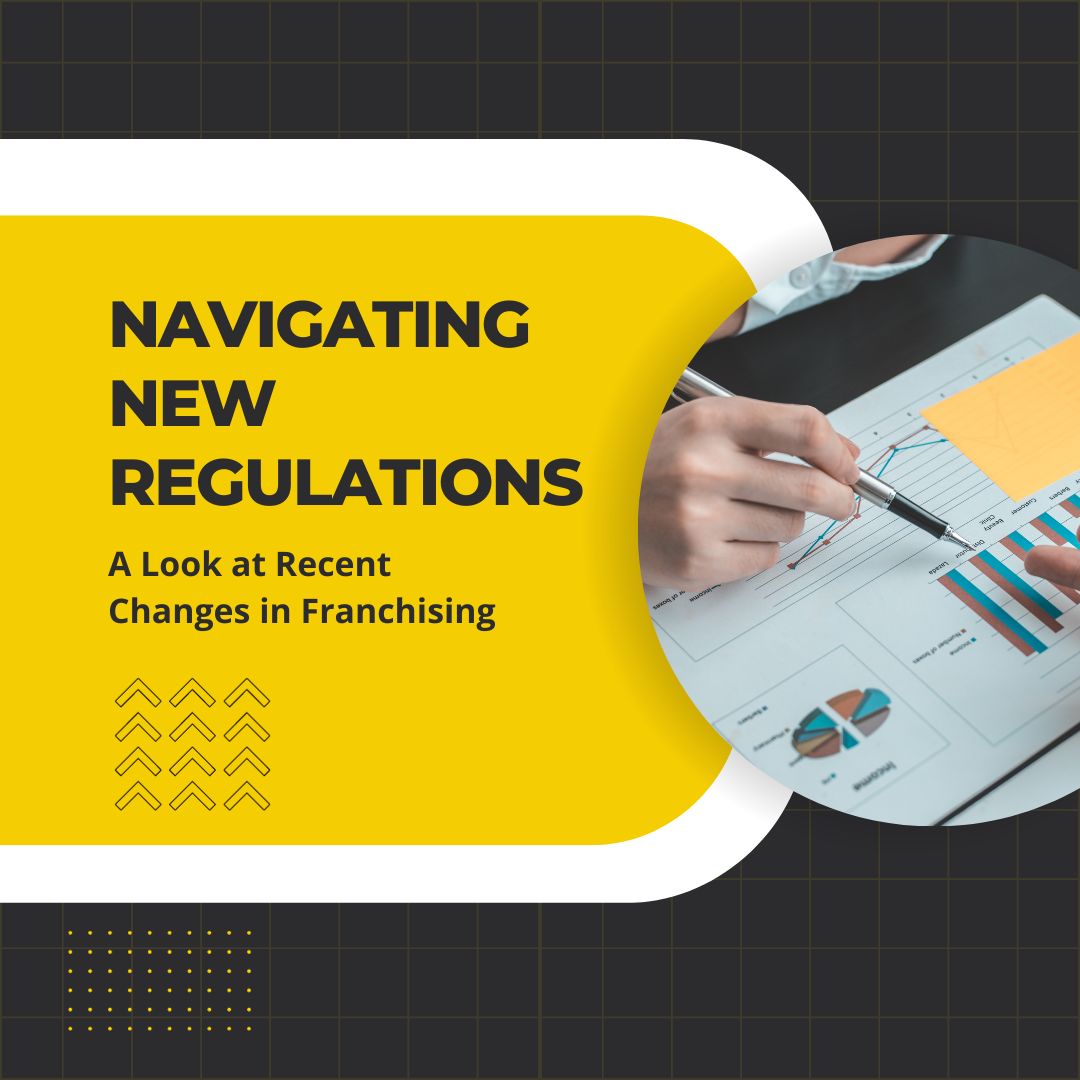Franchising has long been a cornerstone of entrepreneurship, allowing individuals to invest in established brands and benefit from proven business models. However, the world of franchising is not immune to change, and new regulations and shifts in the business landscape have been reshaping the industry. In this blog, we will explore the recent changes in franchising regulations and how franchisees and franchisors can navigate these evolving landscapes.
Evolving Legal Landscape
Franchising is subject to a web of complex legal regulations designed to protect both franchisees and franchisors. Recent years have seen a growing emphasis on transparency and fairness in franchising relationships. Key legal developments include:
Franchise Disclosure Documents (FDDs)
The Federal Trade Commission (FTC) in the United Kingdom has been actively updating and enforcing regulations related to Franchise Disclosure Documents (FDDs). The FDD is a critical document that franchisors must provide to potential franchisees. It contains essential information about the franchise, including the franchisor's financial health, fees, and obligations. Recent changes have aimed at making FDDs more user-friendly and informative.
Joint-Employer Rules
The definition of a joint employer has been a contentious issue in franchising. A joint employer is an entity that shares control over an employee with another organization, such as a franchisee and franchisor. Recent regulations have clarified the boundaries of joint employment, providing more certainty to franchisors and franchisees.
Labor Laws and Minimum Wage
Changes in labor laws and minimum wage standards can significantly impact franchise businesses. Franchise owners must stay updated on federal and state labor regulations to ensure compliance and fair treatment of their employees.
Local Regulatory Variation
Franchising regulations can vary significantly from one location to another. Local laws and regulations may affect aspects such as business licenses, health and safety standards, zoning laws, and more. Franchisees must be aware of and comply with these local regulations, which can sometimes be more stringent than federal laws.
Navigating Regulatory Changes
In this evolving regulatory landscape, both franchisees and franchisors must adapt to stay compliant and thrive. Here are some strategies for navigating regulatory changes in the world of franchising:
1. Stay Informed
One of the most critical steps is to stay informed about regulatory changes. This means keeping up with industry news, attending seminars and conferences, and regularly reviewing legal documents to ensure compliance.
2. Seek Legal Counsel
Legal counsel specializing in franchising can provide invaluable guidance. Whether you are a franchisee or franchisor, consulting with an attorney who understands the intricacies of franchise law is essential.
3. Update Franchise Agreements
Franchise agreements should be periodically reviewed and updated to reflect any regulatory changes. This ensures that both parties are aware of their rights and responsibilities under the current legal framework.
4. Enhance Transparency
Transparency is a cornerstone of modern franchising. Franchisors should go the extra mile to provide clear, honest, and complete information to potential franchisees through the FDD and other communication channels.
5. Invest in Training
Franchisees should invest in training programs for their staff to ensure compliance with changing labor and safety regulations. Well-trained employees are essential for maintaining a positive business reputation.
6. Build Strong Relationships
Open and constructive communication between franchisors and franchisees is crucial. By working together, both parties can adapt to new regulations and find mutually beneficial solutions.
7. Consider Professional Associations
Many franchise systems have professional associations that help members navigate legal and regulatory changes. Joining such associations can provide access to resources and insights.
The Future of Franchising
The future of franchising will likely continue to be influenced by evolving regulations. While adapting to change can be challenging, it also presents opportunities. Franchisors and franchisees who are proactive and responsive to regulatory changes can gain a competitive edge and build more robust, sustainable & low cost franchise.
Conclusion
Navigating the evolving regulatory landscape in franchising is a challenge, but it's a challenge that can be met with preparation, vigilance, and cooperation. Whether you are a franchisee looking to invest in a new opportunity or a franchisor seeking to expand your brand, understanding and complying with the latest regulations is essential for success. By staying informed, seeking legal counsel, and fostering strong relationships, you can navigate the shifting sands of franchising regulations and build a thriving franchise business that stands the test of time.


No comments yet